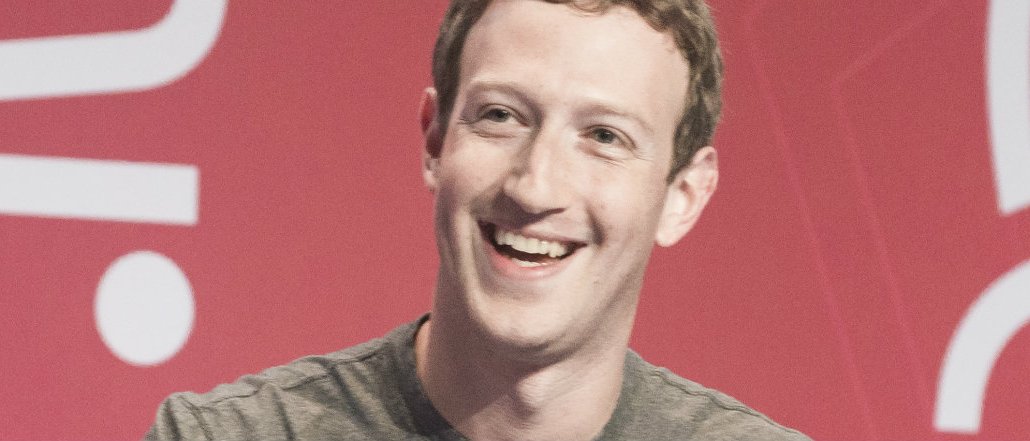Secure your place at the Digiday Media Buying Summit in Nashville, March 2-4
‘The first Facebook election’: Trump win spotlights Facebook’s growing role in news

The traditional media, already facing flagging public trust and shrinking audiences and ad revenue, now faces fresh questions about their relevancy after failing to predict a Trump presidency. At the same time, the role of social media — Facebook in particular — has become a bigger force than ever in how people get their news.
This election, Facebook emerged as a boon for political campaigns for its ability to micro-target audiences. And Facebook has grown as a traffic source for publishers, to the point that it supplies 40 percent of their referrals.
“I think it’s fair to say you’re seeing the first Facebook election,” said Todd Sawicki, a former publisher and CEO of Zemanta, a programmatic platform for native advertising. “It’s the first election where most news sites are getting the plurality of their traffic on Facebook.”
Some of Facebook’s rise as a news distributor has been for progressive causes. Social movements like Black Lives Matter and the Ice Bucket Challenge got traction because of Facebook. But there’s another side.
Nearly half of people now get their news from Facebook. But Facebook doesn’t see itself as a media company; its business objective is to get users to spend more time on the platform, not to serve democracy. But as a distributor of news, it’s a highly flawed one.
Keeping users longer means showing people news in their feeds that they’re likely to agree with and share, which would mean liberals are insulated from conservative viewpoints, and vice-versa, which could explain why liberal journalists didn’t see Trump coming. A recent study provided evidence of the Facebook filter bubble, if small. Both left- and right-leaning publishers have used this to their advantage. The potential of that echo-chamber effect was poised to get reinforced even more in the summer, when Facebook said it would favor posts from friends and family over publishers’ posts.
Meanwhile, Facebook also has continued to have a big problem with fake news, especially since firing a team of human editors to police the stories that it promotes in its trending news section. (Not to let Twitter off the hook, where its trolling problem was on full display during the campaign coverage.)
Talking to family about the election really underscores just how problematic fake news on Facebook is.
— Selena Larson (@selenalarson) November 8, 2016
Zuckerberg and Sheryl Sandberg allowed prob the biggest coordinated hate speech and misinformation campaign in modern history on their watch
— Sam Biddle (@samfbiddle) November 9, 2016
One prevailing narrative around the rise of social platforms is that publishers are the victims. Facebook needs publishers’ content to get users to stay on the platform longer, so it’s been inducing media companies to post video and articles directly to its platform. And publishers need access to the Facebook audience, so they’ve had to play ball. As a result, publishers have lost control over that audience and the ability to fully monetize it.
But publishers haven’t been without benefit. By playing by Facebook’s rules, publishers are also in a sense enabling it, by supplying the content Facebook needs. Doing Facebook’s bidding hasn’t always resulted in journalism at its best, though. Case in point are stories on election polls that turned out to be meaningless, although the stories themselves had big social media benefits.
“When I get into newsrooms and work with them on their content strategies, the quick-hit poll stories get a lot more quick-hit traction than long-term explanatory stories,” said Kelly McBride, who teaches ethics at the Poynter Institute. “Newsrooms experienced an immediate reward for poll stories, and then they invested more and more resources in horse-race stories. Everybody has mandates to keep track of their traffic and identify the ones that do well, then do more of those stories. And poll stories are easy and fast.”
There’s also also a small coterie of publishers from The New York Times to CNN that benefit from Facebook’s power. They’re the ones Facebook calls on first to test out new initiatives and pays to produce live video, which is core to Facebook’s strategy this year. So while there are 20 top publishers who get relatively steady Facebook traffic month to month, the average publisher sees its referrals fluctuate a wide 74 percent from month to month, said John Saroff, CEO of Chartbeat. “The variance means it’s very hard to develop a traffic-driving strategy,” he said.
It’s a dysfunctional relationship that isn’t going to fixed anytime soon. In the meantime, the midterms are only two years away.
More in Media

From feeds to streets: How mega influencer Haley Baylee is diversifying beyond platform algorithms
Kalil is partnering with LinkNYC to take her social media content into the real world and the streets of NYC.

‘A brand trip’: How the creator economy showed up at this year’s Super Bowl
Super Bowl 2026 had more on-the-ground brand activations and creator participation than ever, showcasing how it’s become a massive IRL moment for the creator economy.

Media Briefing: Turning scraped content into paid assets — Amazon and Microsoft build AI marketplaces
Amazon plans an AI content marketplace to join Microsoft’s efforts and pay publishers — but it relies on AI com stop scraping for free.





